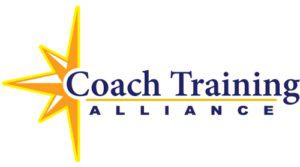Professional coaching has grown exponentially over the last decade as more individuals and organizations recognize its transformative power. Amid this surge in popularity, many aspiring and practicing coaches seek ways to stand out from the crowd and solidify their credibility. One of the most recognized benchmarks in the coaching industry is an International Coach Federation (ICF) certification, a credential that demonstrates a coach’s commitment to the highest professional standards, ethical guidelines, and effective coaching techniques.
ICF certification validates that a coach has undergone rigorous training, accumulated sufficient coaching experience, and demonstrated proficiency in coaching competencies. This process not only benefits the coach through enhanced marketability and confidence but also reassures clients that they are working with a professional committed to quality and ethics. For those aiming to launch or advance a coaching career, obtaining ICF certification can be a pivotal step toward success.
Below is a comprehensive look at why an ICF certification matters, what the certification paths look like, and how to embark on this journey in a way that enriches your skills and fosters trust with your clients.
Why ICF Certification Matters
Enhanced Credibility
One of the greatest advantages of earning ICF certification is the instant credibility it provides. Because ICF is a globally recognized institution that sets high professional standards, this credential tells potential clients and employers that a coach has been trained in core competencies and abides by a strict code of ethics.
Coaches with ICF credentials are often seen as more reputable, which can lead to greater client trust and a stronger professional network. This recognition can prove essential in a competitive market, where clients are searching for evidence of expertise and reliability before investing in coaching services.
Professional Development and Growth
Coaching is a dynamic field that continually evolves with new research, methodologies, and best practices. The pathway to ICF certification involves intensive training, mentorship, and practice, all of which enhance a coach’s skill set. Along the way, coaches deepen their understanding of essential coaching competencies—such as active listening, powerful questioning, direct communication, and accountability—and learn how to apply these skills in various scenarios.
Moreover, the ongoing professional development required to maintain ICF certification ensures that coaches stay updated with industry trends. This commitment to lifelong learning bolsters not only a coach’s knowledge but also the quality of service they can deliver to their clients.
Alignment with Global Ethical Standards
Ethics are a cornerstone of any profession, and the coaching industry is no exception. The ICF has developed a well-regarded code of ethics to guide coaches in maintaining professionalism and integrity. Certification candidates learn about confidentiality, boundaries, conflicts of interest, and other ethical considerations crucial for building a foundation of trust with clients.
By adhering to these ethical standards, coaches demonstrate their dedication to client welfare, transparency, and respectful communication. This foundation can be especially significant in fields where clients share personal and sensitive information, as it reassures them that their coach operates with genuine care and responsibility.
Market Differentiation and Career Opportunities
As coaching becomes more popular, coaches must differentiate themselves to secure rewarding opportunities, whether as independent practitioners or as part of organizations. An ICF certification highlights a coach’s commitment to excellence and can open doors to partnerships, collaborations, and contracts that may otherwise be out of reach.
Many organizations that employ or contract coaches look specifically for ICF-credentialed professionals because they value the assurance of quality and ethical practice. This preference can translate into better career opportunities, including the chance to work in corporate leadership development, executive coaching roles, and organizational culture initiatives.
Understanding the ICF Certification Pathways
The Three Levels of ICF Credentials
The ICF offers three credential levels:
- Associate Certified Coach (ACC)
- Requires completion of an ICF-approved training program, a certain number of coaching hours, and mentoring sessions.
- Ideal for coaches starting out in their careers or those transitioning to coaching from another field.
- Professional Certified Coach (PCC)
- Demands more extensive training, coaching hours, and mentoring than the ACC.
- Reflects a higher degree of skill, experience, and commitment.
- Master Certified Coach (MCC)
- Represents the highest level of coaching mastery recognized by the ICF.
- Requires a significant number of coaching hours and thorough demonstration of expertise in coaching competencies.
The choice among these credentials depends on a coach’s experience, ambition, and area of specialization. Coaches often begin with the ACC and progress to higher levels as they accumulate experience and refine their skills.
Approved Coaching-Specific Training Hours
Each credential level requires a specific number of coaching-specific training hours. These hours ensure that candidates have completed coursework aligned with the ICF’s Core Competencies. Aspiring coaches often enroll in comprehensive training programs approved or accredited by ICF to fulfill these hour requirements.
Coaching Experience
In addition to formal training, coaches must accumulate a set number of client coaching hours. The requirement varies by credential level. For instance, ACC applicants need fewer client hours than PCC or MCC candidates. These hours provide hands-on experience and allow coaches to develop practical skills that go beyond theory.
Mentor Coaching
Mentor coaching is a crucial part of the certification journey. It involves working with a more experienced coach who offers feedback and guidance on coaching sessions. Mentors help candidates align their practice with ICF competencies and ethical standards. This relationship enhances self-awareness and fosters a deeper understanding of effective coaching methods.
Performance Evaluation
To earn an ICF credential, candidates must pass a performance evaluation in which they submit recordings of their coaching sessions for assessment. These recordings are reviewed against ICF competencies, ensuring that candidates can demonstrate proficiency in real-life scenarios. Some paths also include a written exam to test knowledge of ethical guidelines and standards.
Taking the Next Step with an ICF-Accredited Program
Aspiring coaches looking to embark on the ICF certification journey benefit significantly from enrolling in accredited training programs. These programs:
- Provide the required coaching-specific training hours in alignment with ICF standards.
- Offer structured curricula that cover fundamental coaching competencies, ethics, and methodologies.
- Include mentor coaching sessions that guide participants through skill development.
ICF Level 1 Pathway from Coach Training Alliance is one such program designed to support new and existing coaches in obtaining the foundational knowledge and practice needed for an ICF credential. This pathway ensures participants meet the essential requirements and gain practical experience to confidently step into professional coaching roles.
By enrolling in an ICF-approved training program, coaches gain more than just classroom instruction—they gain a community of peers, mentors, and instructors who can provide feedback, share resources, and collaborate on best practices. This support network proves invaluable during the certification process and as coaches establish or expand their professional practice.
Preparing for Long-Term Success
While the immediate goal of ICF certification is to earn a recognized credential, the ultimate value goes beyond the initials after a coach’s name. The certification process lays a robust foundation of skills, ethical principles, and a growth mindset that sets coaches up for long-term success.
Maintaining ICF certification also involves continuing education and re-credentialing every few years. This structure ensures coaches stay updated on the latest industry trends and research, continually improving their effectiveness. Coaches can take additional training, participate in workshops, and join professional coaching communities to stay engaged with emerging ideas and best practices.
Many successful coaches credit the certification journey for helping them refine their niche, clarify their brand identity, and develop a client-centered approach. Through reflection on practice sessions and mentor feedback, they identify their unique coaching style and leverage it to create meaningful client relationships.
Setting the Stage for a Dynamic Coaching Career
In a field where trust and authenticity are paramount, ICF certification can be a game-changer. It signals a dedication to high standards and ethical practice, reinforcing the notion that coaching is a professional discipline with measurable competencies. Clients can have greater confidence in a coach’s methods, and organizations seeking to invest in coaching initiatives are reassured by the credential’s global recognition.
As you consider taking this significant step in your coaching career, reflect on how ICF certification can shape your practice, enhance your client relationships, and open new avenues for professional growth. The certification journey involves commitment, discipline, and passion for continuous improvement—qualities that lie at the heart of effective coaching.
Exploring programs like the ICF Level 1 Pathway from Coach Training Alliance can streamline this process and offer guided support every step of the way. Whether you’re an aspiring coach eager to learn foundational skills or a seasoned professional aiming to reaffirm your expertise, ICF certification stands as a respected milestone in any coach’s journey.

